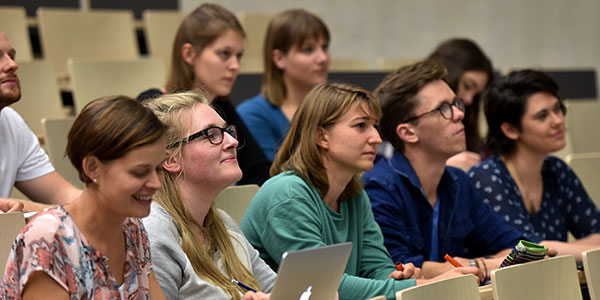- Beschreibung der Lehrveranstaltung:
- As in nearly every aspect of life, digitalisation has also been called for in most civil justice systems, recently. Although digitalisation is not a novelty to the reform agenda in Germany, the COVID-19 pandemic has massively catalysed approaches to modernise civil procedure and to make the civil justice system more resilient. This course will elaborate these approaches and current developments in detail. To this end, the course will begin outlining the very anatomy of German Civil Procedure Law. Students will gain a profound understanding of the fundamental principles and structure of German Civil Procedure Law, the hierarchical organisation of civil courts, procedural steps and the role of key stakeholders in the litigation process. From this basis, the course will deeply dive into the digitalisation approaches in the reform process and analyze how digital tools and technologies are integrated into the reformation of procedural rules and court processes in Germany: i.e. especially the use of videoconferencing technology in court hearings and the gathering of electronic evidence, the introduction of electronic files, the electronic communication with the court, the use of artificial intelligence (AI) in the decision making process, the installation of mere online proceedings etc.
Upon completing the course, the students should:
a) have gained a profound understanding of the fundamental principles and structure of German Civil Procedure Law
b) have deep knowledge of the hierarchical organisation of civil courts, the procedural steps and the role of key stakeholders in the litigation process
c) have gained an in depth insight into the digitalisation approaches in the current reform process and have learned how digital tools and technologies are integrated into the reformation of procedural rules and court processes in Germany
Übersicht
Kategorie
Vorlesung
Semester
Sommersemester 2025
Dozent
Philipp
Reuß
Institut
Institut für Privat- und Prozessrecht
Zeit & Ort
Course is held en bloc @ National Taiwan University, Taipeh
Dokumente
Session 01
Materialien
910 KB
PDF
verfügbar
26. Mär. 2025 - 14:25 Uhr
Materialien
910 KB
26. Mär. 2025 - 14:25 Uhr
910 KB
PDF
verfügbar
Session 02
Materialien
268 KB
PDF
verfügbar
26. Mär. 2025 - 14:25 Uhr
Materialien
268 KB
26. Mär. 2025 - 14:25 Uhr
268 KB
PDF
verfügbar
Session 03
Materialien
2 MB
PDF
verfügbar
26. Mär. 2025 - 14:26 Uhr
Materialien
2 MB
26. Mär. 2025 - 14:26 Uhr
2 MB
PDF
verfügbar
Session 04
Materialien
829 KB
PDF
verfügbar
26. Mär. 2025 - 14:26 Uhr
Materialien
829 KB
26. Mär. 2025 - 14:26 Uhr
829 KB
PDF
verfügbar
Session 05
Materialien
441 KB
PDF
verfügbar
26. Mär. 2025 - 14:26 Uhr
Materialien
441 KB
26. Mär. 2025 - 14:26 Uhr
441 KB
PDF
verfügbar
Session 06
Materialien
265 KB
PDF
verfügbar
26. Mär. 2025 - 14:27 Uhr
Materialien
265 KB
26. Mär. 2025 - 14:27 Uhr
265 KB
PDF
verfügbar
Session 07
Materialien
1.6 MB
PDF
verfügbar
26. Mär. 2025 - 14:28 Uhr
Materialien
1.6 MB
26. Mär. 2025 - 14:28 Uhr
1.6 MB
PDF
verfügbar
Session 08
Materialien
233 KB
PDF
verfügbar
26. Mär. 2025 - 14:28 Uhr
Materialien
233 KB
26. Mär. 2025 - 14:28 Uhr
233 KB
PDF
verfügbar
Session 09
Materialien
403 KB
PDF
verfügbar
26. Mär. 2025 - 14:28 Uhr
Materialien
403 KB
26. Mär. 2025 - 14:28 Uhr
403 KB
PDF
verfügbar
Session 10
Materialien
281 KB
PDF
verfügbar
26. Mär. 2025 - 14:24 Uhr
Materialien
281 KB
26. Mär. 2025 - 14:24 Uhr
281 KB
PDF
verfügbar
Session 11
Materialien
614 KB
PDF
verfügbar
26. Mär. 2025 - 14:25 Uhr
Materialien
614 KB
26. Mär. 2025 - 14:25 Uhr
614 KB
PDF
verfügbar
Session 12
Materialien
610 KB
PDF
verfügbar
26. Mär. 2025 - 14:29 Uhr
Materialien
610 KB
26. Mär. 2025 - 14:29 Uhr
610 KB
PDF
verfügbar
Session 13
Materialien
1.2 MB
PDF
verfügbar
26. Mär. 2025 - 14:30 Uhr
Materialien
1.2 MB
26. Mär. 2025 - 14:30 Uhr
1.2 MB
PDF
verfügbar
Session 14
Materialien
520 KB
PDF
verfügbar
26. Mär. 2025 - 14:30 Uhr
Materialien
520 KB
26. Mär. 2025 - 14:30 Uhr
520 KB
PDF
verfügbar
